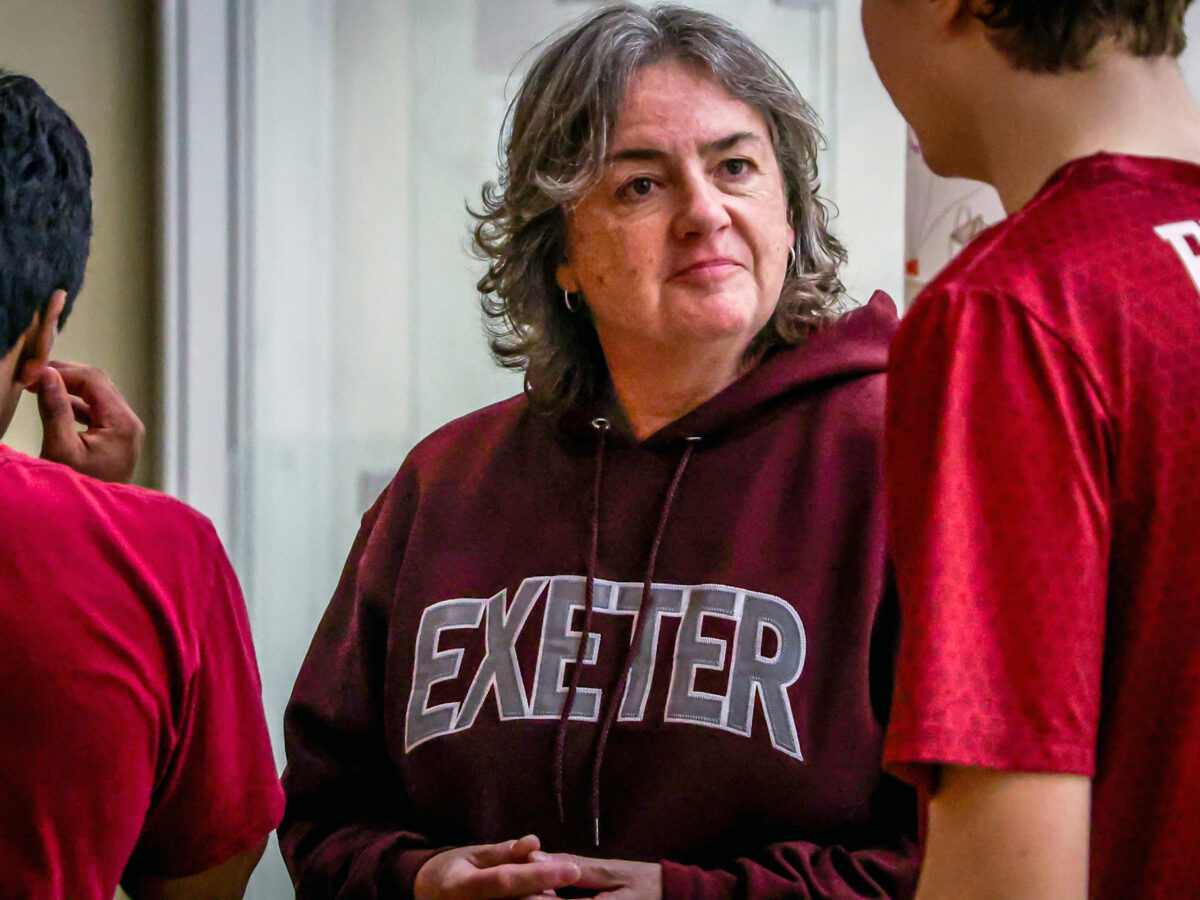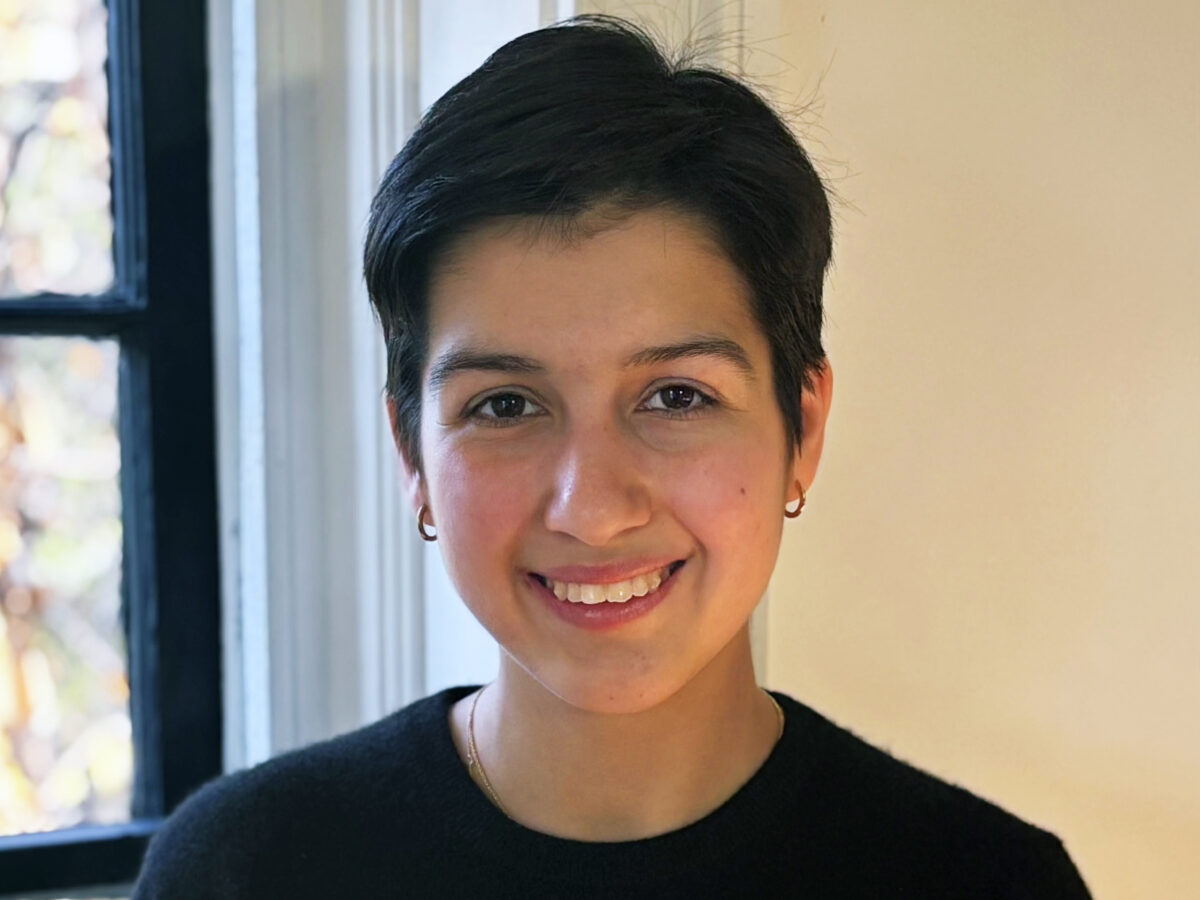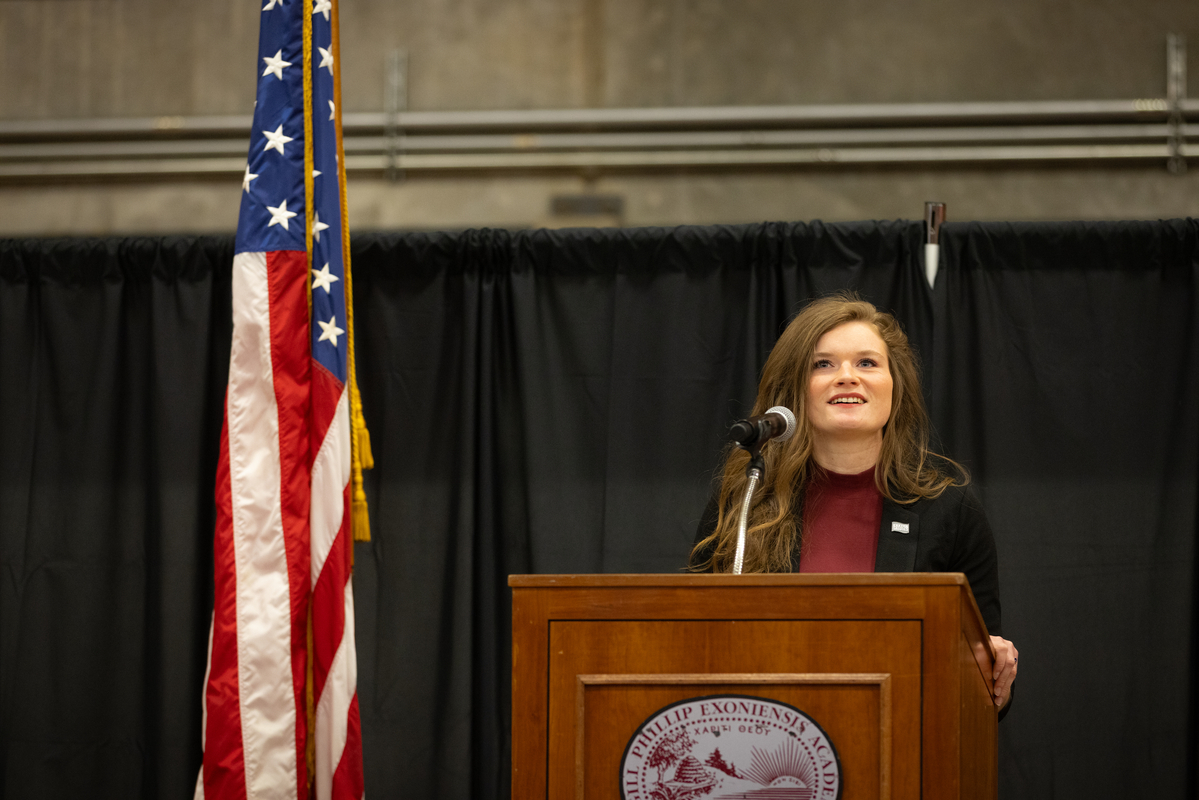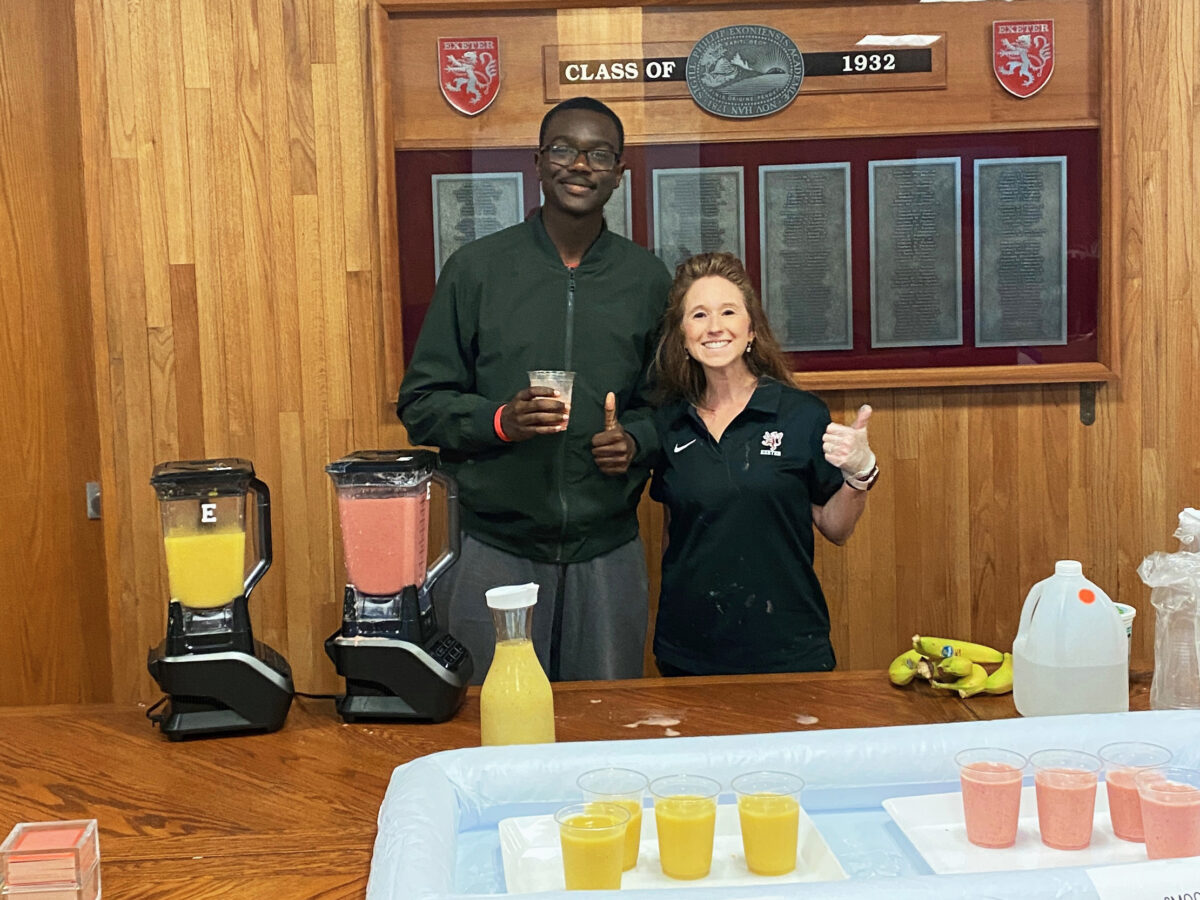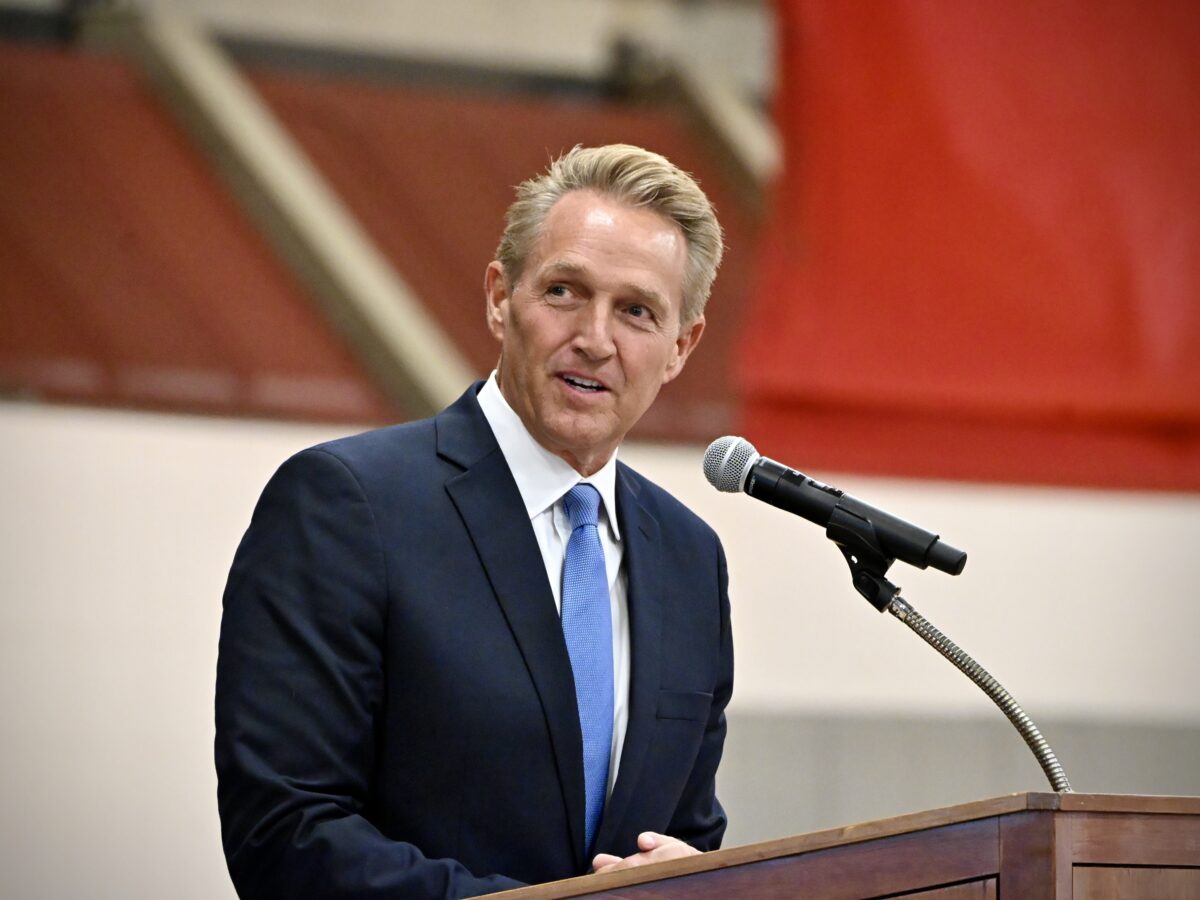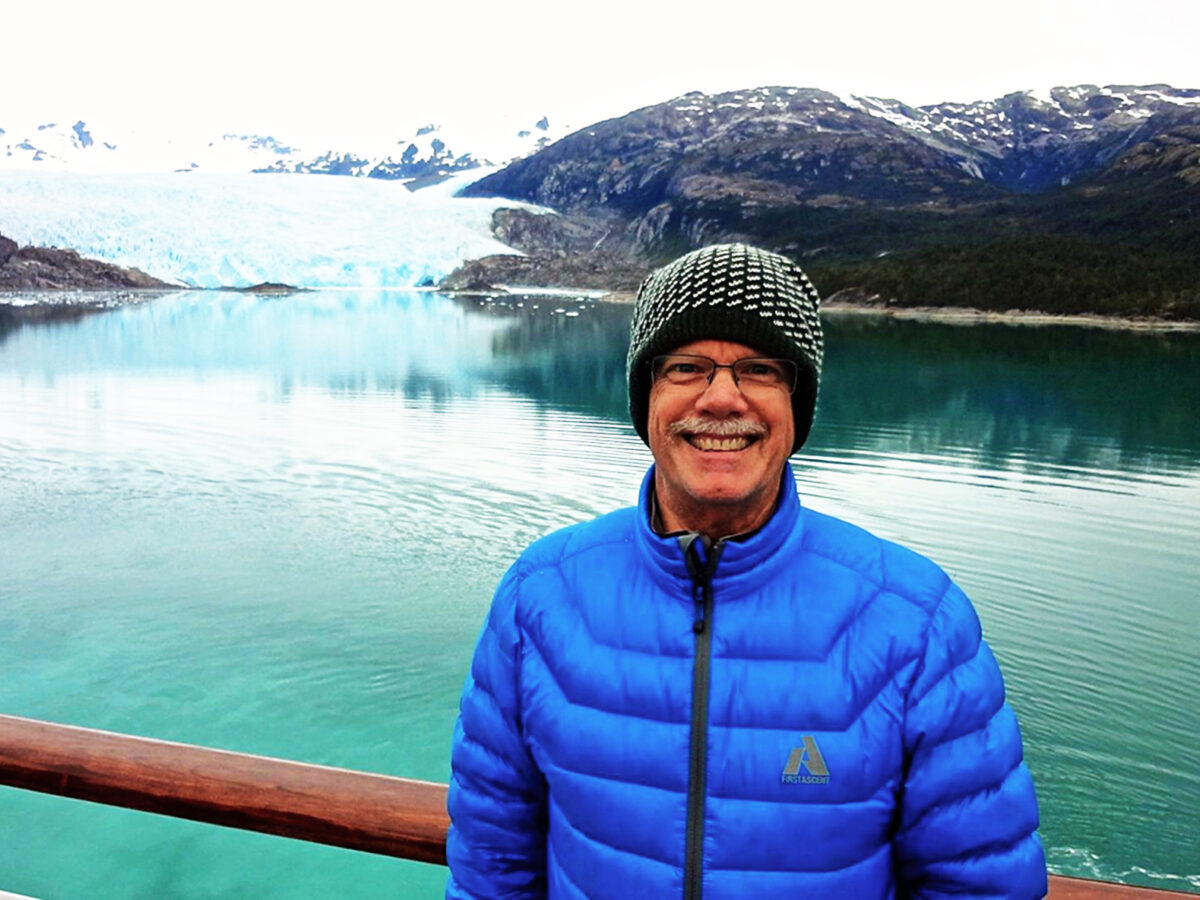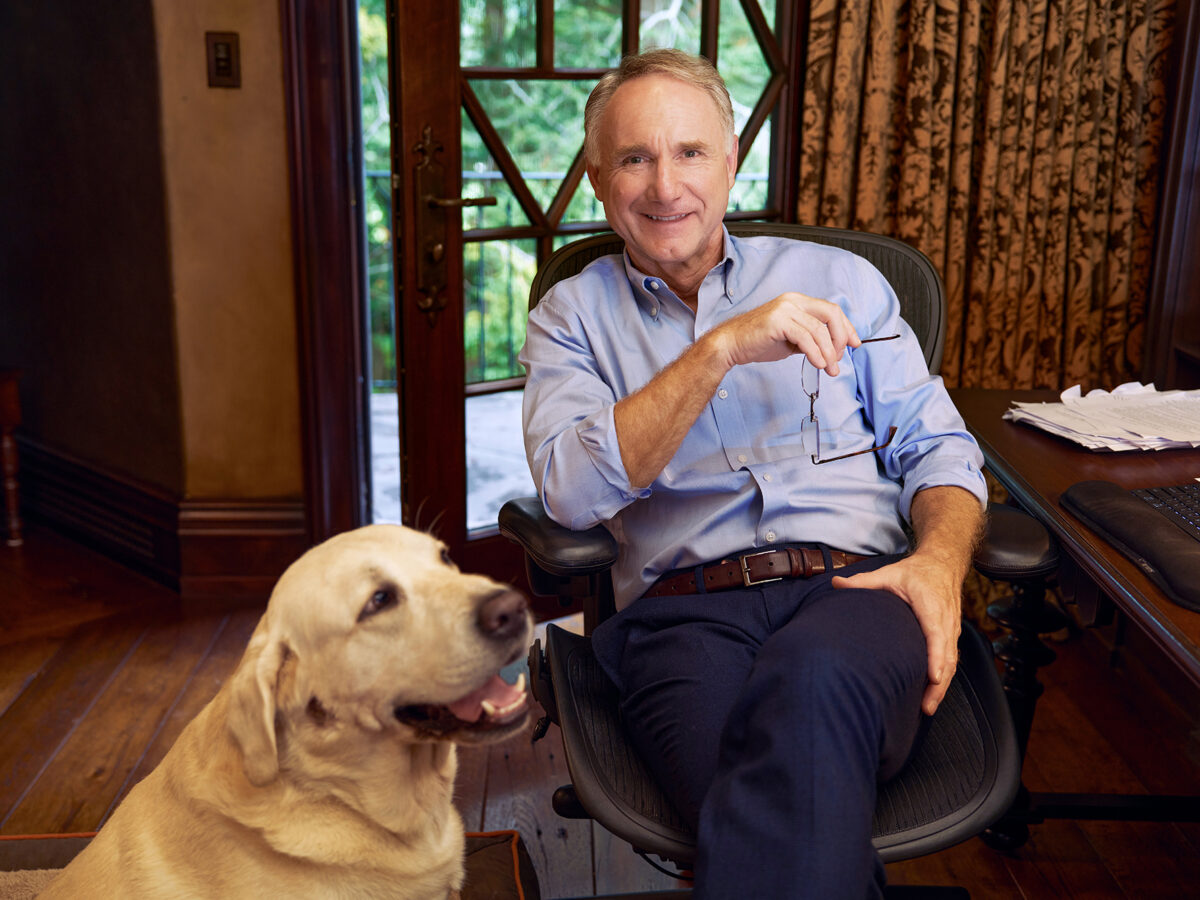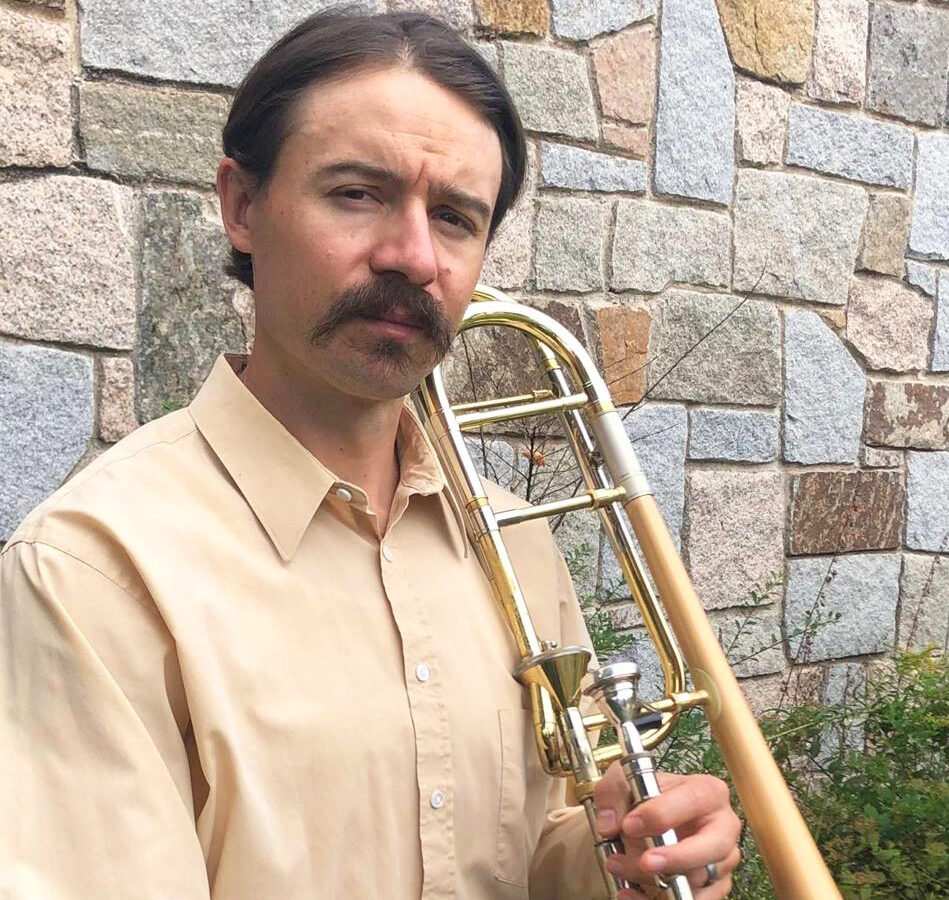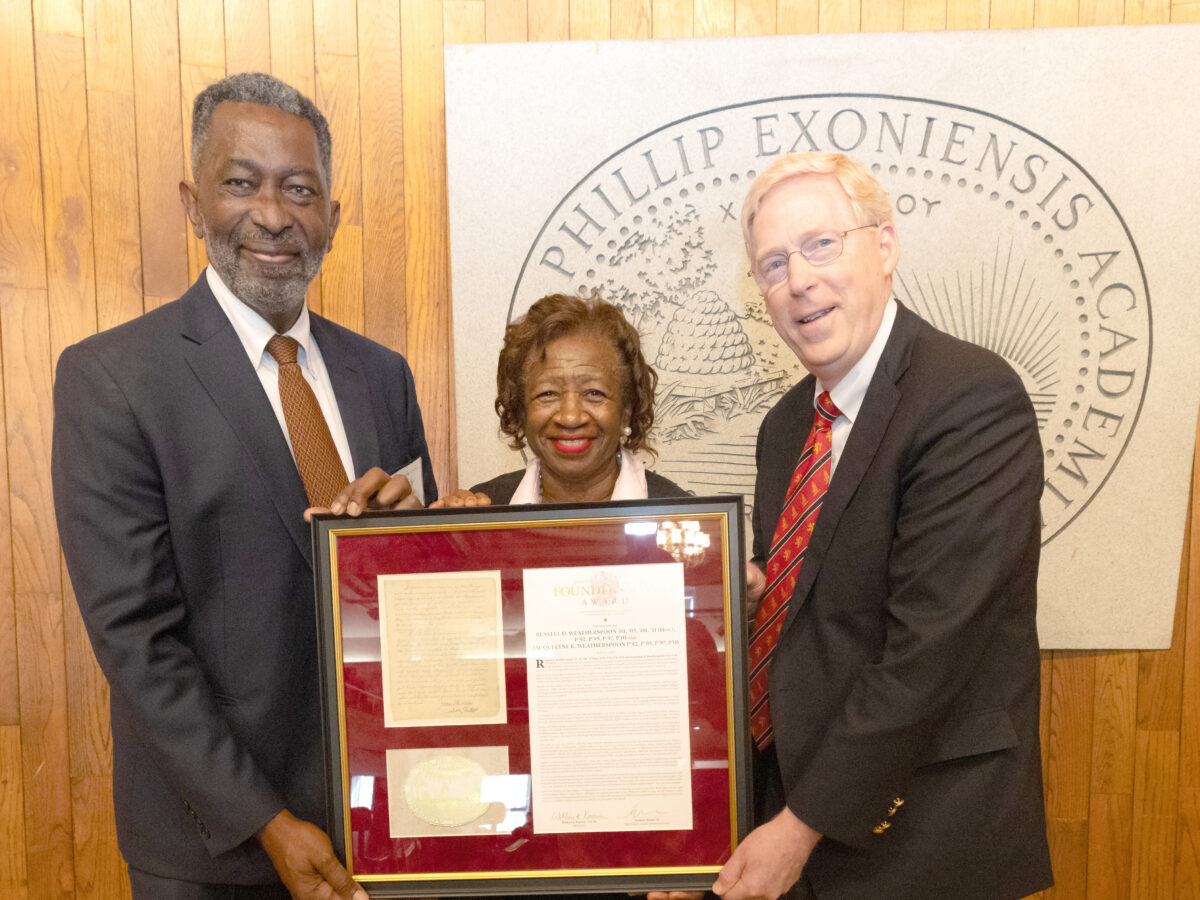Grief and Grace
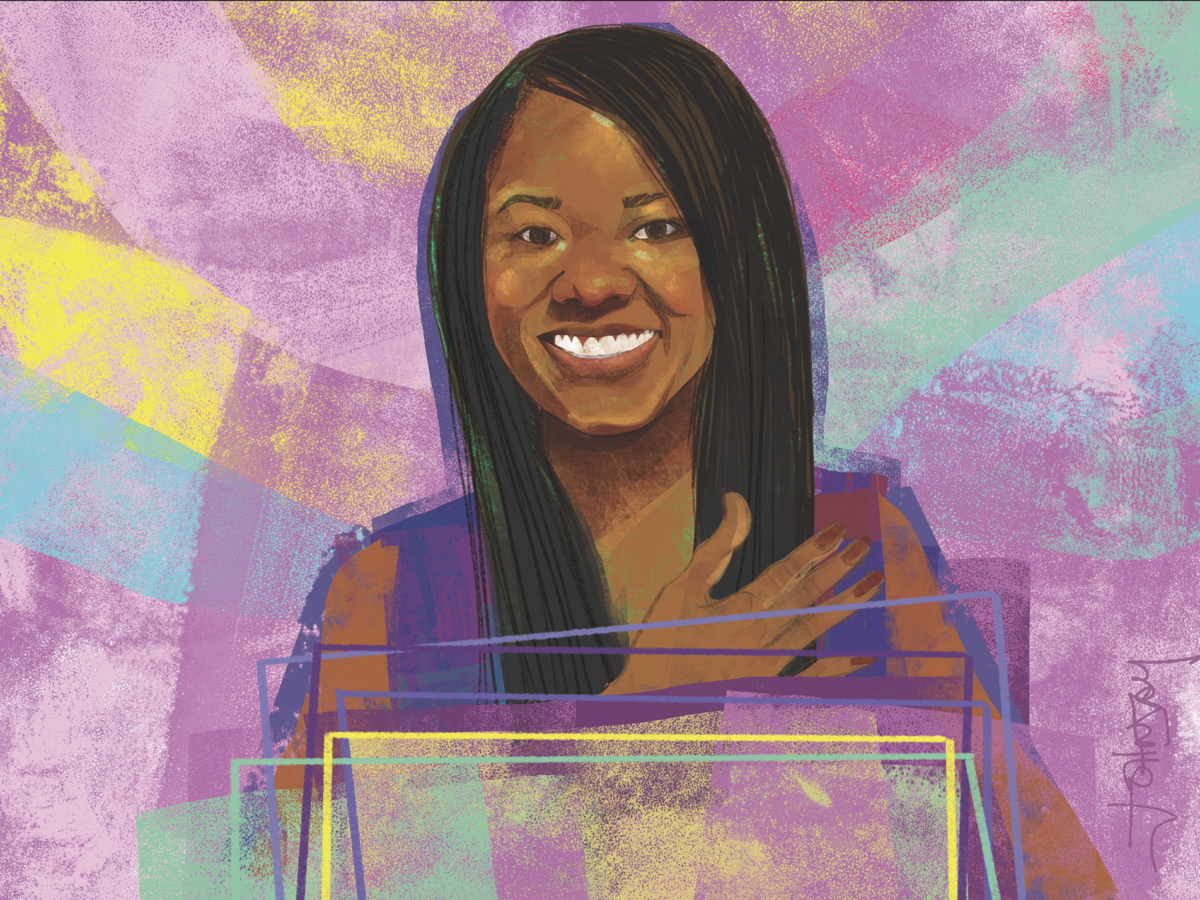
Courtney Shaw, chair of the Department of Health and Human Development, on changing your perspective
Each fall, faculty members take to the podium in Phillips Church, in front of peers, students and friends, to deliver meditations. There is no template or paradigm for a meditation. Most are personal and evolve from thinking about life and one’s place in it. One of the earliest published collections of meditations states, “The meditations may well signify the best of what Phillips Exeter Academy seeks to nurture within its community: clear cogent expression, observation and contemplation, respect for others, and a sense of the complex interrelatedness of humankind.” Here is an excerpt from the meditation Courtney Shaw shared with the community this fall.
I have lived long enough to know grief and grace on a first-name basis.
“Mrs. Shaw, your daughter is what we consider gifted and talented.” That was code for I would spend first through fourth grade in the C.L.U.E program, Creative Learning in Unique Environments. I loveeeeed CLUE. I met several politicians, the old Sammy Sosa was my pen pal, and Beowulf was my favorite read!
I didn’t realize this opportunity would come at the cost of being an outcast among my peers. It was also in this program that I learned some people shouldn’t teach young minds. Ms. Flatt was the fourth-grade CLUE instructor and, having had enough of my many questions, told me there was no purpose in answering MY hypotheticals because I wasn’t leaving Memphis.
Turn to your neighbor and say, “Don’t let someone with no vision tell you how to see.”
I remember being so embarrassed because the class was all of, like, six kids. I nervously laughed to keep from crying and was on mute for the rest of the day. I rode the bus home. I remember that at every stop, I would question every word she said to me, analyzing her choice of vocabulary. My brain processes information like a web. You say one thing and I immediately see visuals. When my mom walked through the door and hung her lab coat on the coat hanger and my dad unpacked his uneaten lunch items, I rattled off what Mrs. Flatt said. As I talked, I watched my 6-foot-6¾-inch dad smirk and then exit the kitchen to sit at the dining table for my mother’s response. My mother is one of the wisest people I know. A preacher ordained in ’95. She turned to me: “Well, Courtney, what did you think of what she said? Is it true?”
“Uh, no.”
“Who is she to you?”
“She’s my new CLUE teacher.”
I don’t remember much else other than my parents meeting with the principal and Mrs. Flatt. I finished the year out and didn’t return to public school until college.
Middle school was riddled with its own fun challenges. Mrs. Hiller was cool until she couldn’t find my homework in the homework tray. I asked her to re-check the tray, but she wouldn’t even look, so I was forced to stay behind to complete it. The consequence? Missing break — a time when I could eat and play an intense game of foosball. The break was also a time for the teacher to get a break and for the teacher’s aide to come in. In walks Ms. Newsome. “Courtney, are you OK?”
“No, Mrs. Hiller won’t check the tray and I know my work is there. It’s unfair. I asked and she wouldn’t even look. This feels wrong.”
Man, don’t you know Ms. Newsome gets up, walks out of the class to find the principal. The intercom comes on: “Courtney Shaw, you are needed in the principal’s office.” I take the walk of shame and enter her office where she hands me the phone. It’s my mother: “We’ll handle this at home.” Gyaaaaaaaaat dang mane, I knew exactly what that meant.
When I returned to class, my peers and Mrs. Hiller were walking in from break and a student knocked over the homework tray. Whose homework was at the bottom of the tray? Courtney Shaw’s. My teacher’s response, “Oh here it is.” No apology, no call back home. Grief.
High school was even better! I carved “Life is what you make it” on every notebook I had because I learned then the choice was mine to make the life I wanted. But what you do with the things you DIDN’T MAKE will show you HOW to live.
I was one of five Black students in my school of 500. I, like some teenagers, was angry at my parents for sending me to that school. A bunch of smart kids. Most of them wealthy. Then there was me, full financial aid.
The first time I got called n—– was outside my locker during third period. Followed by a kid in my grade asking if I could bring the fried chicken and watermelon to our Christmas class party.
Grief was when my only outlet, the choir, decided we would sing a Negro spiritual for our road performances … when three of the choir members, including me, are only a few generations removed from slavery.
Grief was being mad at all of this and directing it to my parents. You know, the ones who grew up during Jim Crow and were literally bused to integration.
And grace was them listening to a 14-year-old rant for four years about a high school that was heaven compared with what they endured.
Eighteen years ago, I sat where many of you sit now, Class of 2026. I wasn’t sure where I was going to college. My grind for college was a tad different than my peers’. My parents told me and my sisters, when I was 10, that they weren’t paying for us to go to school. “We got scholarships and worked, so can you. I had my heart set on Vandy until I saw the package Vandy had for me. Yeah, no.
That’s when I pivoted. I fell in love with not only a school that was a good distance away, but a school that wanted to pay me to be there. I took my talents to Middle Tennessee State University, where I excelled and by April of 2012 was set to graduate in May. My plan was to return in the fall to pursue my master’s through an assistantship that would cover the admissions costs.
I was sitting at my internship and decided to call and check the receipt of my grad application. “I’m sorry, Courtney. I don’t see it anywhere.” I was crushed. My face flushed. Tears welled. Plans completely thwarted. I got up from my desk and told my boss that I needed a moment to gather myself. I had to have been in that bathroom for about 15 minutes. I let it out, gathered myself and returned to the office. I sat down at my desk. As I opened my email, my boss stood in the doorway. “I forwarded you a position for a one-year paid internship. Take a look at the description, if you are interested, reach out.”
I sent the email. The hiring personnel responded. Boom, we had a 30-minute call scheduled for that Wednesday. That Wednesday, 30 minutes turned into an hour and a half. That hour and a half turned into my becoming the health education intern at the Academy.
The funny thing is, the day I moved into Webster, my acceptance letter to the grad school arrived at my home. My intern experience at Exeter could be described by my current students as interesting. I spent many nights leaving Lamont heading back to Webster, questioning if I made a mistake coming here. Whether you are a student/kid or staffulty/ adult, this place can be hard. Through the many challenges I faced, it was my perspective, supplied by grace, that I look back and credit, through all of those hard situations, places, times and people, for molding me into the educator I am today.
I guess you could say, 18 years later, I am thankful to still be in a space to learn, and hope you always remember that if you can change your perspective, you can change your life.
This article was originally published in the winter 2026 issue of The Exeter Bulletin.
Courtney Shaw served an internship in the Health and Human Development Department during the 2012-13 school year. She joined the Academy as an instructor in 2021 and is currently the chair of the Department of Health and Human Development.
